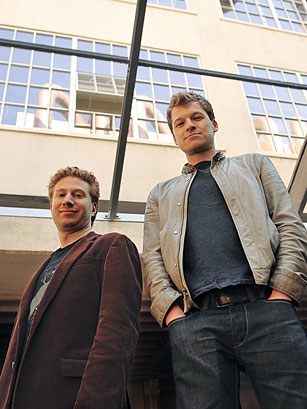
Short for scribbled, Scribd has harnessed the principles of mass content distribution in a way few can match. "In the old days, publishing was a slow-moving business," says chief technology officer Jared Friedman. "Today it's all real time." Scribd's technology — launched in 2007 by Friedman, Trip Adler and Tikhon Berstam — makes the Web's traditional vessel for documents, Adobe's Portable Document Format, look anachronistic. Users can create a Scribd document from just about any file type and publish and share it in minutes. The idea of reading something through Scribd rather than on Scribd is key to the site's development. Scribd functions as a massive storehouse for documents (with more than 10 million), but that's by no means the only place people discover them. To compete in the e-book space, in 2009 Scribd launched Scribd Store, where anyone can upload manuscripts to sell. The economics of it are appealing. Scribd takes a 20% cut of each sale — compared with the 30% Amazon gets. Traditional publishing channels keep even more. Scribd is the ultimate long tail company: it estimates the site will publish 350,000 books this year, the idea being that a few downloads of many books can still generate substantial revenue. But Scribd has bigger plans than being a vanity press. "The long tail has been our bread and butter, but as Scribd has grown as a company, we've moved steadily up," Friedman says. The firm recently opened an office in New York City to court publishing's titans, and it continues to forge deals with e-reader companies to support Scribd's technology. "Scribd was lucky, honestly, to start a publishing 2.0 company right around the time the publishing industry began its most dramatic reinvention since the printing press," Friedman says. It may have taken nearly four years, but Scribd's timing — and approach — has never been better.
—by Dan Fletcher